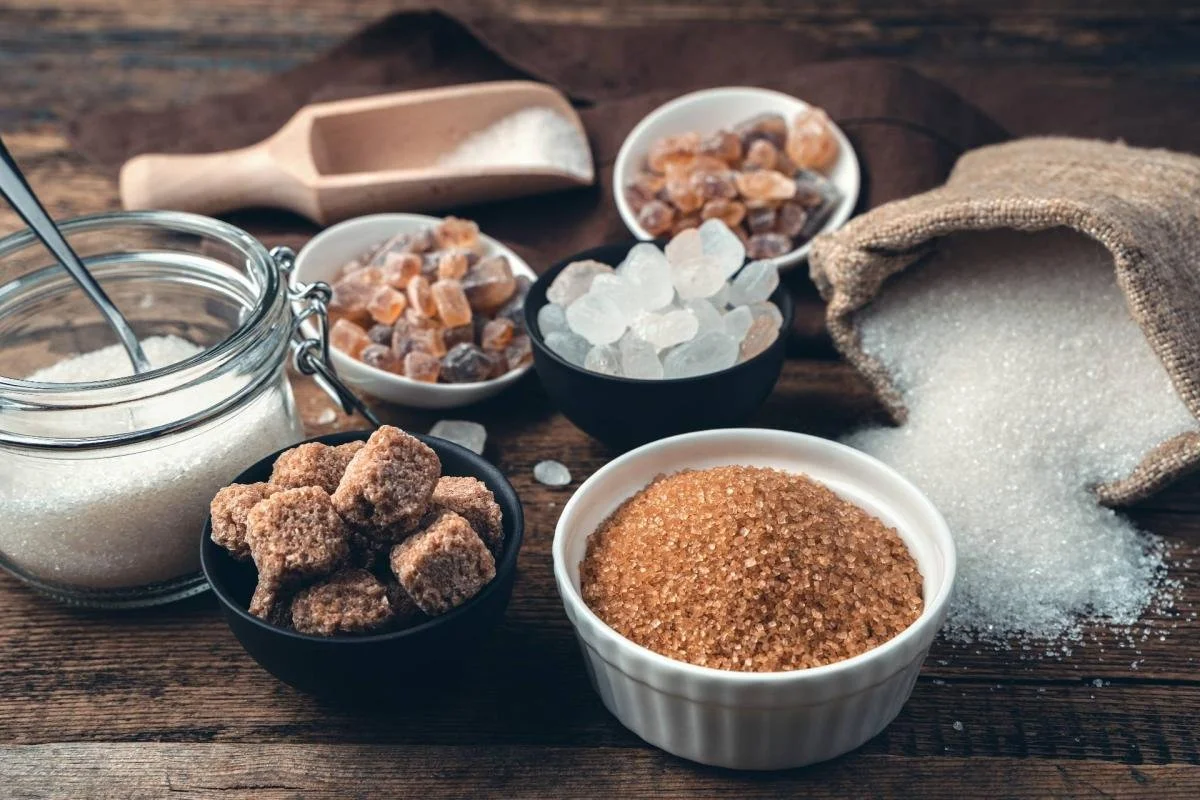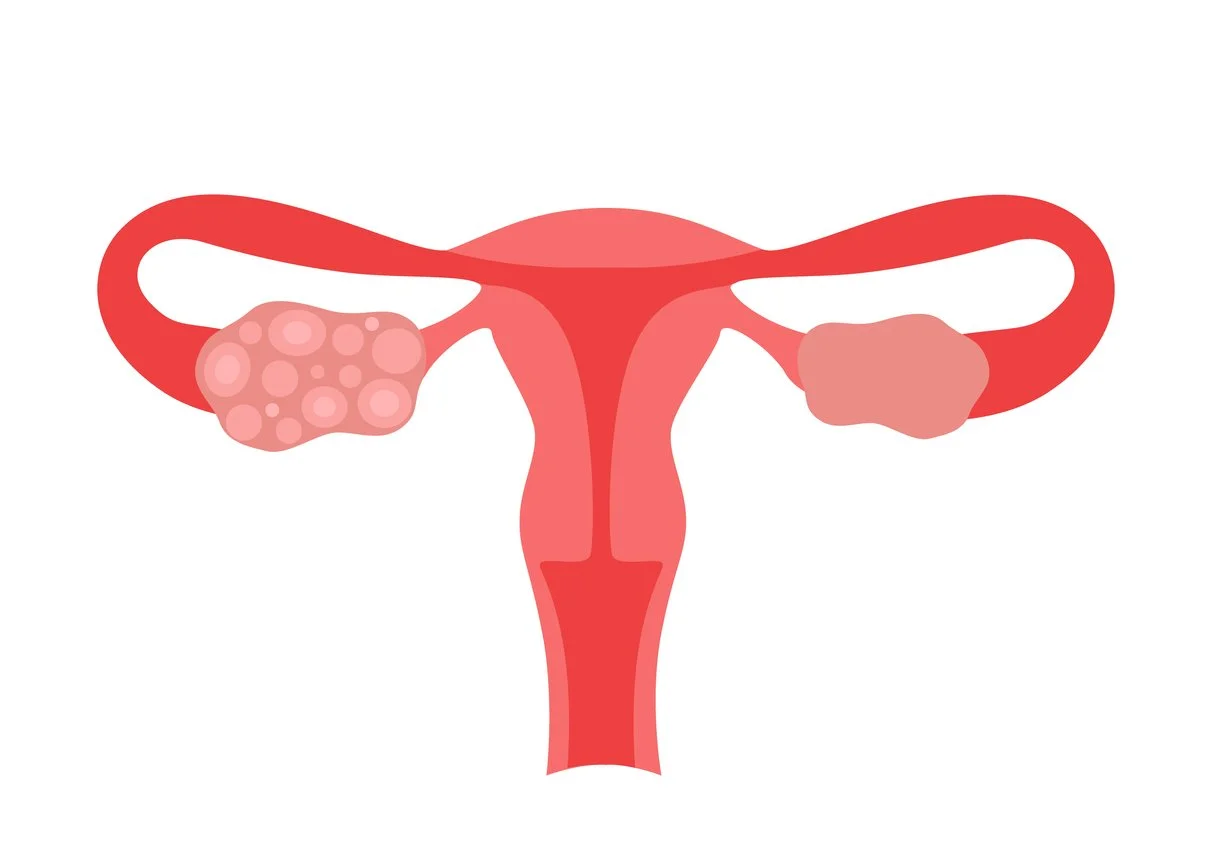Isn’t life sweet enough?
With Mother’s Day this coming weekend, we’d like to dedicate this edition to our mom’s. They were the first to care for us, the first to make sure we got off to a healthy start and the first to empower us.
Some of our reader’s know that Eve Was Framed got it’s name from Maggie’s mother, who passed away after a long battle from Alzheimer’s. Her legacy lives on through the family and friends who carry her in our hearts and often ask “What would Scotty do?” when faced with big decisions. (You’ll find an article about the latest promising drug trial for Alzheimer’s)
- Maggie Ruvoldt & Stephanie Majercik
The Tasting Menu
Want a Side of Sugar With That?
5 Facts About PCOS
Is it Aphasia or Dementia?
Want a side of sugar with that?
Added sugars are sugars and syrups that are added to foods during processing or preparation. They are different from natural sugars found in fruits, vegetables, and milk, which are an important part of a healthy diet. Added sugars provide calories but have little or no nutritional value. Excessive consumption of added sugars has been linked to a variety of health problems, including obesity, type 2 diabetes, heart disease, and tooth decay.
Many processed foods contain added sugars, even those that are not sweet, such as ketchup, salad dressings, and crackers.
The American Heart Association recommends that women limit their added sugar intake to 6 teaspoons per day (for men it’s 9 - okay that seems unfair!). However, the average American consumes about 17 teaspoons of added sugars per day.
Consuming foods high in added sugars can cause a spike in blood sugar levels, which can lead to insulin resistance over time. Not to mention the weight gain. Women are prone to insulin resistance during perimenopause and post menopause making added sugars a double risk for women over 40.
So how do you know how much you’re getting? Food labels.
When reading food labels, you will see added sugars under nutrition facts and in the ingredients there are ingredients you are sugar, even if they don’t include that word:
Molasses
Agave nectar
Maple syrup
Fruit juice concentrates (e.g., apple or grape)
Malt syrup
Rice syrup
Evaporated cane juice
The “ose” words (Dextrose, Fructose, Glucose, Lactose, Sucrose)
It's important to note that some foods may contain natural sugars, such as lactose in milk or fructose in fruit, which are not considered added sugars. When reading food labels, look for sources of added sugars rather than total sugar content to make informed decisions about your diet,
Resources
Reading food labels for added sugars from the FDA
Insulin resistance and menopause from the Women’s Health Network
5 Facts About PCOS
Polycystic Ovary Syndrome (PCOS) is one of the most common hormonal disorders that affecting people with ovaries – it affects 1 in 10 women of childbearing age. The disorder is caused when ovaries produce a higher level of androgens (a male sex hormone) that leads to an imbalance. It’s generally characterized by irregular or completely missed periods that also contributes to difficulty in predicting ovulation and can contribute to some infertility challenges.
Like many other disorders, it’s complex and there can be a lot of uncertainty around it. Here’s 5 quick facts to know:
PCOS is diagnosed through a series of blood tests, ultrasounds, and a look at your medical history. Typically, you need two of these three symptoms: irregular or missed periods, high levels of androgens (measured via a blood test), or an ultrasound showing partially developed eggs
While there’s no cure for PCOS, symptoms and other health risks can be managed through medication and/or with a healthy diet and active lifecycle
50-70% of people with PCOS have insulin resistance, which may explain why those with PCOS are at a higher risk of developing diabetes (including gestational diabetes when pregnant)
Despite its name, not everyone with PCOS gets ovarian cysts. Other symptoms or signs of PCOS could include – excess hair on the face or body, acne, weight gain or trouble losing weight, thinning hair, and skin tags
PCOS is linked to other health issues including: cardiovascular disease (including high blood pressure), type 2 diabetes, sleep apnea, metabolic syndrome, and mood disorders
Is it Aphasia or Dementia?
If a loved one starts searching for words or experiencing memory lapses, it is deeply concerning. You may wonder if this is beyond normal aging or forgetfulness and a sign of something more.
To better understand neurological conditions that impact a person's ability to communicate effectively, we started learning about aphasia and dementia. While they share some similarities, they are distinct conditions with different causes, symptoms, and treatments.
Aphasia is a language disorder that occurs as a result of damage to the brain's language centers. It can be caused by a stroke, traumatic brain injury, or a progressive neurological condition, such as Parkinson's disease or Alzheimer's disease. People with aphasia may have difficulty with speaking, understanding language, reading, and writing.
Dementia, on the other hand, is a progressive neurological disorder that affects multiple cognitive functions, including memory, thinking, and reasoning. It is most commonly caused by Alzheimer's disease, but can also be caused by other conditions, such as:
Vascular dementia
Lewy body dementia
Frontotemporal dementia.
One key difference between aphasia and dementia is that aphasia primarily affects language function, whereas dementia affects a range of cognitive functions. Additionally, aphasia is often caused by a specific event, such as a stroke, while dementia is a progressive condition that develops over time.
If you or a loved one is experiencing symptoms of either condition, it's important to consult a neurologist. It can be frightening and the instinct may be to ignore it. However, getting an accurate diagnosis can lead to treatment options to slow the progression.
Resources
Signs of Aphasia from the American Speech-Language- Hearing Association
About Dementia from the CDC
Medical Term of the Week
We’ve used the term insulin resistance in several pieces over the past few months. So what is it?
Insulin resistance is a metabolic condition in which cells in the body become less responsive to insulin and aren't taking up sugar in your blood to convert to energy. As a result, you produce more insulin (in the pancreas) to make up for the decreased sensitivity and still your blood sugar levels rise.
Treating insulin resistance often involves making lifestyle changes, such as increasing physical activity and consuming a healthy diet, as well as medication in some cases. There are several blood tests to diagnose insulin resistance.
The Latest
Eli Lilly announced a promising drug trial combating Alzheimer’s Disease (From New York Times)
Wait, menopause is only a human thing? We learned a lot about aging ovaries this week. (From Wired)
Looking for ways to be an advocate for infertility awareness? (from The Bump)







